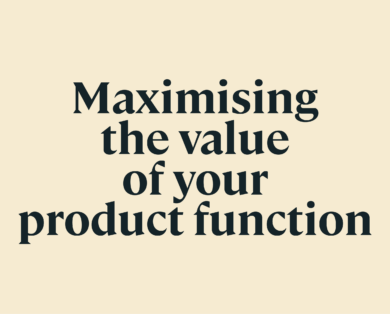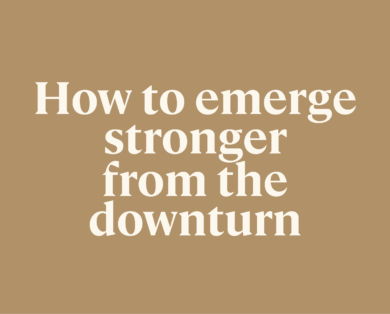- 24 July, 2024
Forward-thinking leaders have long recognized the power of empathy in unlocking higher levels of success but faced with the challenges of these unprecedented times, the need for empathic leadership today is even greater.
Earlier this month, we hosted a session with empathy expert Minter Dial where he shared the results of his research into how empathy boosts engagement and innovation. Using concrete examples, Minter talked about how leaders can raise their level of empathy and propagate it strategically across their company.
We opened the conversation with a definition. According to Minter, empathy is one of the most misunderstood levers of productivity. He defined empathy as “the ability to understand someone else’s thoughts, feelings, or experiences by imagining what it would be like to be in that person’s situation.”
The key word here is ‘understand’. This is what differentiates empathy from its close cousins, sympathy, which is feeling sorrow or concern for others, and compassion, which is feeling the need to take action to help others. Though these are also important qualities, they are quite distinct from empathy, given neither requires the need to understand someone else’s situation well.
The first step in developing this ability to understand others better is to realize that two individuals can have a vastly different experience of the exact same event. In other words, our perception of reality is highly subjective, colored by our thoughts, feelings and beliefs which are in turn shaped by our genes, upbringing, and education. Even among close siblings who grew up in the same household, there are often clashes of views rooted in contrasting perceptions of the same events. Empathy is what helps us bridge the gap when our impressions vary.
Increasingly empathic leadership is being seen as a key ingredient in building successful businesses. According to a 2018 study published by Businessolver, “87% of CEOs see a direct link between workplace empathy and business performance, productivity, retention and general business health.”
Leadership is about empathy. It is about having the ability to relate to and connect with people for the purpose of inspiring and empowering their lives.
Oprah Winfrey
If you find studies unconvincing, here is a concrete example you can examine. The economic impact of the COVID-19 pandemic has forced business leaders to have to make many tough decisions to save their companies, including large scale layoffs. But not all leaders have handled these the same.
Compare this recent communication about layoffs at Airbnb from the CEO Brian Chesky with these communications from Wing, TripActions, and Bird. It is impossible to ignore the difference in these approaches. That difference is empathy. A quick Google search will reveal how differently these approaches have landed with the public and with employees.
So why don’t we have more empathetic leaders? Ironically, because of a lack of understanding. Minter talked about how our biases and misconceptions get in the way of developing empathy, i.e. leaders misunderstand what empathy looks like and they do not want to be seen as weak or emotional.
Stay focused on what really matters. There will be times when your resolve to serve humanity will be tested. Be prepared. People will try to convince you that you should keep your empathy out of your career. Don’t accept this false premise.
Tim Cook, Apple CEO
Our poll found that even for those who want to be more empathetic, it is not easy to create the time and space to develop this skill further due to stress and speed of building an early-stage company.
Of course, as with most things, empathy comes more easily to some than others. However, anyone can work on becoming more empathetic. It doesn’t need to be difficult. Minter suggests five different ways to promote empathy.
These are:
- Start listening intensely — especially to those to whom you are close — and reformulating what you’re hearing. You can repeat what you heard back to them, “so what I’m hearing you say is…” or “so if I understand correctly, what you’re saying is…” and validate if your understanding is correct.
- Venture out to meet different people in un-likeminded communities. Try to overcome your defensiveness and withhold objections, aim to understand their point of view.
- Read classic fiction and zone into the protagonists’ feelings and thoughts, especially those who are different from you.
- Practice mindfulness.
- Know (deeply) why you have decided to become more empathic.
Whether you aim to engage your employees, win a big customer, or innovate on a product, the ability to better understand people will serve you in reaching your goal so it is well worth the effort to get good at it. And Minter’s book Heartificial Empathy is a great place to start.

About Minter Dial
Minter Dial is the author of the award-winning book “Futureproof, How to get your Business Ready for the Next Disruption” and “Heartificial Empathy, Putting Heart into Business and Artificial Intelligence”.
He previously served as a marketing executive at L’Oreal and a Board Member at LastMinute.com.










